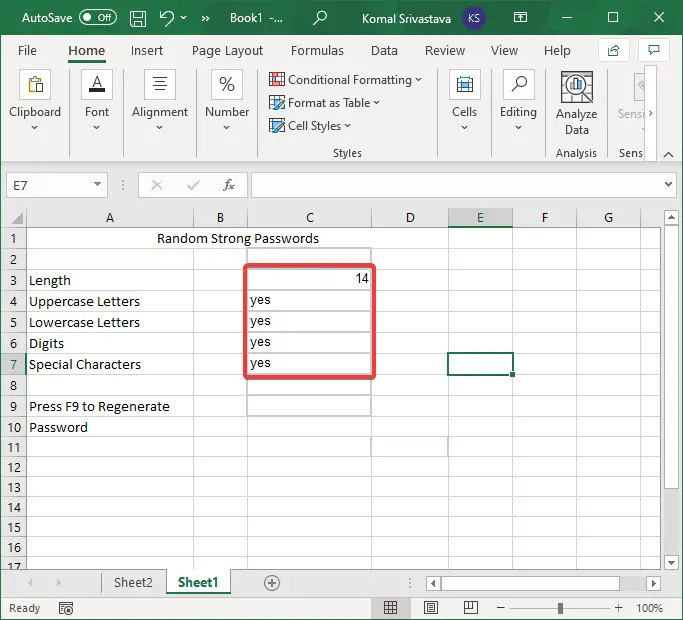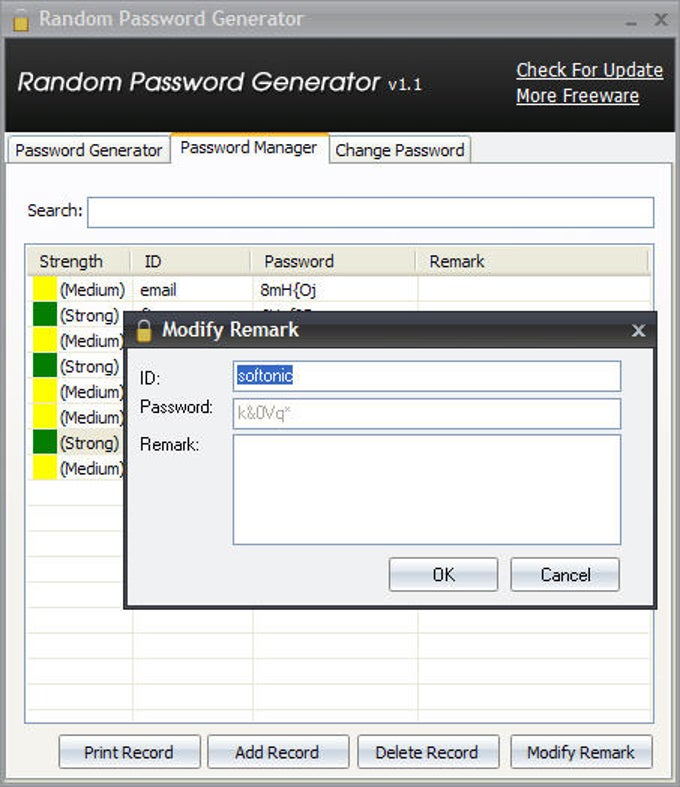

For most applications, we suggest making a six-word passphrase.
Random password generator for excel how to#
We’ll walk you through how to use EFF's Long Wordlist to generate a passphrase.

Is random password generator safe?Ī: Yes, this is a safe generator.Privacy info. A password generator will use a pseudo-random number to create the passwords and you can then copy it over into your account.

How do random password generators work?Ī: The word generator is a bit misleading here. Some of the most common methods include using dice, tossing a coin, or even scanning QR codes from magazines and newspapers. The excel sheet includes a list of possible words, with the word length and the number of characters in parentheses.įrequently Asked Questions How do I generate a random password generator?Ī: There are many ways to generate passwords and passphrases you can use in your life. The “ random password generator excel” is a tool that can be used to create random passwords. New-RandomPassword -MinimumPasswordLength 10 -MaximumPasswordLength 15 -NumberOfAlphaNumericCharacters 6 -ConvertToSecureString New-RandomPassword -MinimumPasswordLength 10 -MaximumPasswordLength 15 -NumberOfAlphaNumericCharacters 6 -NumberOfAlphaNumericCharacters You may simply run this function after you’ve added it to your profile, either as a PowerShell module or by copying and pasting it into your current session. After you have the password as a plain-text string, use the ConvertTo-SecureString cmdlet to convert it to a secure string.ĬonvertTo-SecureString -String $secPw $password -Force -AsPlainText Creating a PowerShell Scriptįinally, take our random password generator to the next level by writing a function that you can use everywhere without having to know all of the aforementioned syntaxes.įunction New-RandomPassword Many PowerShell components demand a secure string if you’re going to use this password there. $minLength = 5 # characters $maxLength = 10 # characters $length = Get-Random -Minimum $minLength -Maximum $maxLength $nonAlphaChars = 5 $password = GeneratePassword($length, $nonAlphaChars) in To generate a random length password, use the Get-Random cmdlet to get a random integer, which you can then use as the length argument! You could even go a step further and make the password lengths random.
Random password generator for excel code#
When you run the following code snippet, PowerShell will produce a string with a random variety of characters that you may use anywhere you like.

GeneratePassword($length, $nonAlphaChars) in The next step is to run the GeneratePassword() function, handing in the values of both variables established before. The code line below creates a variable 5 that you’ll send to the method to guarantee the password has five non-alpha characters. The example below shows how to set a variable of 10 that you’ll send to the method.Īfter that, specify how many non-alphanumeric characters you want in your password. Think characters such as etc.įirst, decide how long you want your password to be.


 0 kommentar(er)
0 kommentar(er)
